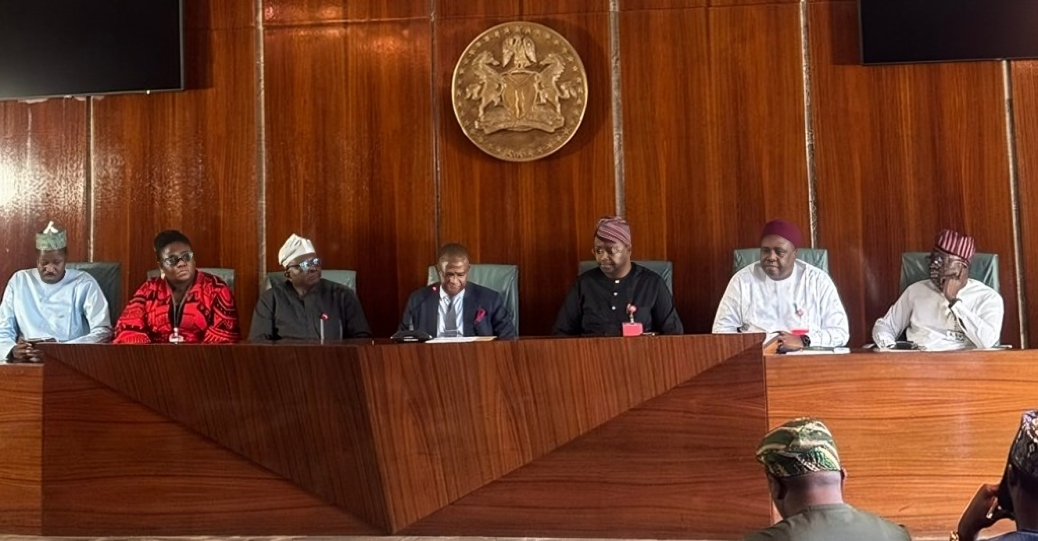The Attorney General of the Federation and Minister of Justice, Lateef Fagbemi, has alleged that Governor Siminalayi Fubara of Rivers State played a role in the recent destruction of oil pipelines by militants in the state.
Speaking in defense of President Bola Tinubu’s declaration of a state of emergency, Fagbemi claimed that Fubara not only failed to prevent the attacks but had also indirectly encouraged the militants.
“There was what I would call telegraphing of the militants by the governor,” Fagbemi said.
“He initially suggested that he would beckon on them to let them know when it was time to act. Even if we assume that was just rhetoric, did he come out to disown them when they took action? The answer is no. And barely a week after, we saw the vandalization of oil pipelines.”
The AGF emphasized the importance of oil infrastructure to Nigeria’s economy, warning that anyone involved in its destruction is not just an enemy of Rivers State but of the entire country.
Fagbemi justified the suspension of Governor Fubara, his deputy, and the state’s lawmakers, arguing that they had failed to create an atmosphere conducive to governance.
“The President acted based on the Supreme Court’s judgment, but also to protect critical infrastructure in Rivers State,” he explained.
“The Supreme Court, that’s the highest court in the land, made a categorical pronouncement after making very pronounced findings, profound findings of breaches of the Constitution by the parties involved, particularly the governor of rivers state, came to the conclusion that he was acting like a despot and that, as the situation is in rivers state, there is no Government
“These are very serious and very weighty allegation that only an irresponsible head of state or leader will fold its arm to and ignore. Like I said, he took a very bold decision.
“We were all there when he (Tinubu) made a public announcement, addressed the public in which he chronicle all the facts from generating from genesis to revelation,” he said.
“People were living in fear, and some were losing their lives. This is an extraordinary situation that required decisive action,” Fagbemi added.
The AGF dismissed claims that Tinubu’s intervention was hasty, insisting that the escalating crisis left the President with no choice.
He further argued on whether the Rivers situation warranted a state of emergency: “Let me start on a note of how we got to where we are today. How did it all start? That is about the genesis. We all know how we got here. Since 2023, I think towards the end of 2023, things have not been going on well to the extent that the governor took the law into his hands and demolished, brought down the house of Assembly. “Don’t forget the role of the House of Assembly. They are the lawmakers. They are to consider budget. They are to, you know, pass budget. They are also to be approached in matters of appointment of commissioners for ratification and all other things. They are to do oversight functions.
“So, since that happened, things have not been the same at all. In a community of 32, you expect that at least 15 or 16 will be there to do the job. The governor, like I said, and it is no longer news, constituted three or four of the members to the house of into the house of Assembly, and gave them preferential treatment, move them to the Government House to be doing legislative, performing legislative functions.
“These situation got to the court.
There were about 10,15, 16 cases, and at the end of the day, the Supreme Court came out and made very profound findings of breaches of the Constitution, mainly against the governor.
“You see, you rise or fall on the basis of what you took to court and what decision of the court is on it. The court came to the decision that the governor had long anticipated, wrongly that he might be impeached, and because of that, he knew that The House of Assembly was a critical structure, or ‘Yes’ organ to do that, brought down the house of Assembly. 14 months after that, at yesterday, it was 14 months. There was no effort to rebuild the house of Assembly.
“The government stands on the tripod, the executive, the legislature and the judiciary. You have made the functioning of government impossible. It is not enough for the legislative, for the executive, to say, we are spending money, even the money you want to spend must have been appropriated for by the House of Assembly.
“These are some of the findings that the Supreme Court made. And at the end of the day, the Supreme Court said, or came to a decision, that the behavior of the governor was like a despot, and that as situation was, there was no government in Rivers.
“If there was no government in Rivers what else are we looking for?
“I’m so sorry for bringing in this, this issue in the Bible. They asked Jesus Christ, are You the Son of God? And he said, Yes. Then others chorused, what further evidence we do we need from this man?
“So, the stage is set. But no action was taken immediately in the expectation or hope that good sense will prevail, the governor will create an enabling environment, and that the House of Assembly too would be reasonable enough to ensure that the people of Rivers actually got a return for their voting of both members of the House of Assembly and the governor and other elected officials to Enjoy dividends of democracy.”
“Then the third in the series is about the security situation in that place. You know, if he had waited maybe a day longer, only God knows what would have followed. And as a result of that, he came out to say, I am not only the head of state. I’m commander-in-chief of the armed forces. He (Tinubu) declared a state of emergency,” he stated.
Fagbemi also noted that the National Assembly has the constitutional authority to overturn the suspensions by refusing to grant the required two-thirds majority approval.
“The ball is now in the court of the National Assembly,” he stated.
“If they do not ratify it, the suspensions will not stand.”
Fagbemi explained that the Rivers case is different from that of Adamawa, Borno and Yobe states where the elected structures were preserved despite the declaration of a state of emergency under President Goodluck Jonathan in 2013.
According to the governors of the three states requested for the action whereas Governor Fubara did not urged President Tinubu to intervene.
Fagbemi explained: “Then the last in the series is about what happened during President Jonathan’s period. Don’t forget, like I said, every matter depends on the peculiar facts and circumstances of the case.
“You can declare emergency in a variety of ways. It is like a man who is suffering from a disease. The soul is cancerous they say, Oh, I hope it has not spread to so so area, then you now excise the portion affected. I think that was what happened during President Jonathan’s period.
“The Covid has its own, Boko Haram has its own. If it was Boko Haram, they were situated or confined in particular areas and the governor then said come to my aid.
“But the governor who is at the centre of it here has not made any such request and it would have been grossly irresponsible for the presidnet to fold his arms.
“So the situation in the era of Jonathan is different from what we have here. What we have here is everybody is involved. You can exercise your rights but there are always lines. You don’t cross the lines because there will be consequences.”
Fagbemi dismissed claims that President Tinubu acted with bias, insisting that the President was not following the agenda of the Minister of the Federal Capital Territory, Nyesom Wike.
He further suggested that the intervention in Rivers State could be seen as a compromise, arguing that it ultimately prevented Governor Fubara from being completely removed from office.
“So, then the other one is about compromise and replacement. It appears so. Don’t forget, I think yesterday, there was a notice of impeachment from the house of Assembly. If that impeachment had been allowed to take its full course, then the governor would have lost entirely and completely.
“So in a way, if you say it’s a compromise, I will agree that instead of allowing the impeachment process to continue, and which in the end, would have seen both the Governor and the deputy governor out of office and been out for the entirety of the four year term with the remainder of what it we have, we are one month, one year, I think about nine months now that yes, so living it a balance or so of two years and 2, months? So if normalcy returns, some other things may come in. But for now, well, maybe it’s a compromise. I will agree,” Fagbemi affirmed.
Additionally, Fagbemi hinted that the funds previously withheld from Rivers State could be released if the appointed administrator formally requests them, given the extraordinary circumstances in the state.
READ MORE FROM: NIGERIAN TRIBUNE
WATCH TOP VIDEOS FROM NIGERIAN TRIBUNE TV
- Let’s Talk About SELF-AWARENESS
- Is Your Confidence Mistaken for Pride? Let’s talk about it
- Is Etiquette About Perfection…Or Just Not Being Rude?
- Top Psychologist Reveal 3 Signs You’re Struggling With Imposter Syndrome
- Do You Pick Up Work-Related Calls at Midnight or Never? Let’s Talk About Boundaries






